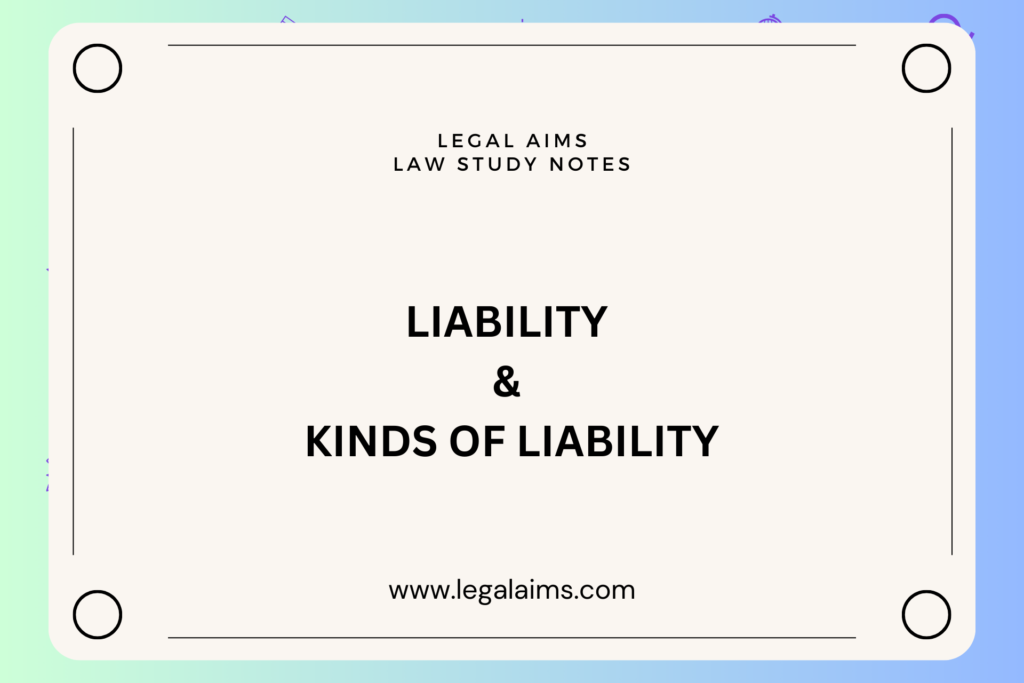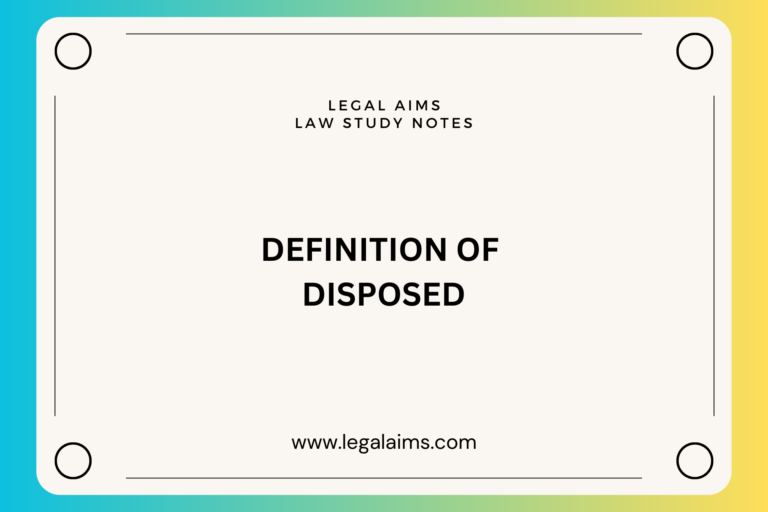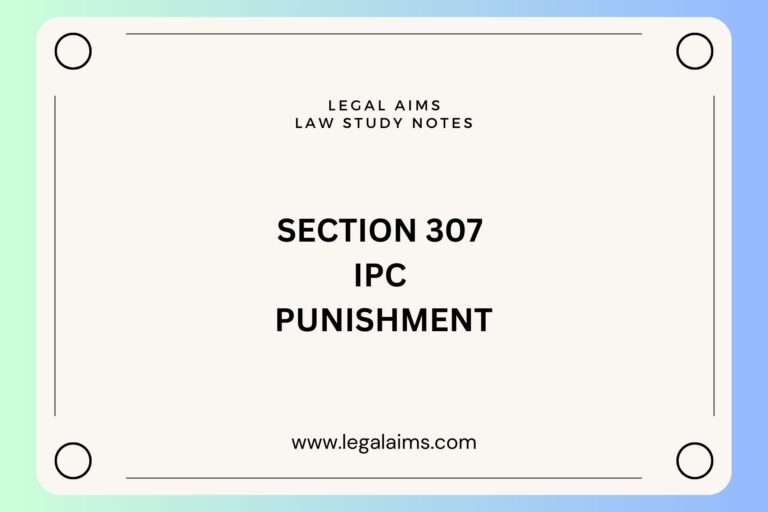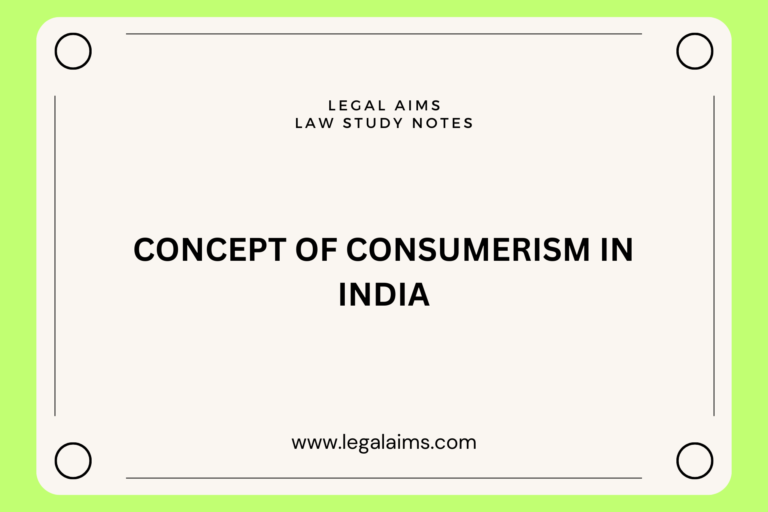Liability & Kinds of Liability
Liability
- Liability is responsible for wrongful acts or omissions.
- SALMOND defines liability as vinculum Juris i.e. a bond of necessity and the remedy of the wrong.
- Liability arises from a breach of duty which may be in the form of an act or omission.
Read More: types and elements of possession
Kinds of Liability
- Civil or criminal liability.
- Penal or remedial liability.
- Vicarious or absolute liability.
1. Civil or criminal liability :
Civil:
- Where the remedy is civil, the party wronged has a right to demand the redress allowed by law, and the wrongdoer has a duty to comply with this demand.
- Civil liability involves liability by way of damages, restitution, etc.
Criminal :
- In criminal remedy, the wrongdoer is under a duty to pay such penalties as the law through the agency of the courts prescribes.
- Criminal liability is by punishment or other dealing with the offender.
- Difference between civil and criminal liability:
| Civil | Criminal |
| 1. Civil wrong is wrong against a private person. | 1. Criminal wrong is against society |
| 2. The remedy against the civil wrongs Is damages | 2. The remedy against the crime is Punishment. |
| 4. In civil wrong liability is Measured by the wrongful by the intention of the wrongdoer. Act and the liability depend Upon the act and not upon the intention. | 3. The proceedings in case of crime are Criminal proceedings. |
| In crime, liability is measured by the intention of the wrongdoer | In crime, liability is measuredMeasured by the intention of the wrongdoer |
2. Remedial and penal liability :
Remedial :
- Civil liability is generally remedial.
- It is based on the maxim ‘Ubi jus ibi remedium’.
- It means “when there is a right there must be some remedy”.
- The purpose of remedial liability is to ensure the specific enforcement of plaintiffs’ rights.
- The aim of remedial liability is to protect the rights of the plaintiff rather than punishing the wrongdoer.
- EXCEPTION :
- Duties of imperfect obligations.
- Duties which by nature are incapable of specific performance.
- Where the specific performance is inadvisable.
Penal :
- Criminal liability is penal.
- The main purpose of penal liability is either directly or indirectly to punish a wrongdoer.
- It is based on the maxim “Actus non facit reum, nisi mens sit rea” which means “An act does not become wrongful unless followed by a guilty mind”.
3. Vicarious and absolute liability :
Absolute or strict liability:
- Where a person is held unable for his act even though he did not do it intentionally or
- Salmond divides the chief instances of strict liability into 3 classes :
1. Mistake of law :
- An act done under the mistake of law is not said to be an intentional act because the doer of it does not know that what he is doing is prohibited by law.
- ‘Ignorantia Juri non excusat’ i.e. ignorance of the law is not an excuse.
2. Mistake of fact :
- A mistake of fact is a good defense in the law of crimes.
- ‘Ignorantia facti excusat’ i.e. ignorance of fact is excused.
- If A, who is out hurting in a forest shoots at a bush thinking that a tiger was lurking inside and bullet hits and kill B, he will be exempted from criminal liability due to mistake of fact.
- Inevitable Accident :
- The ground of exemption from liability both in civil and criminal.
- A person is not liable for an act taking place accidentally.
- Vicarious Liability :
- When a person is made liable for the act of another on account of his standing in a particular relationship with that person. This liability is called vicarious liability.




